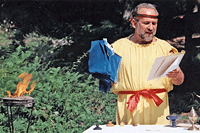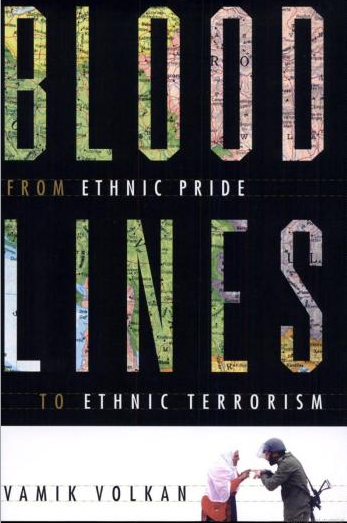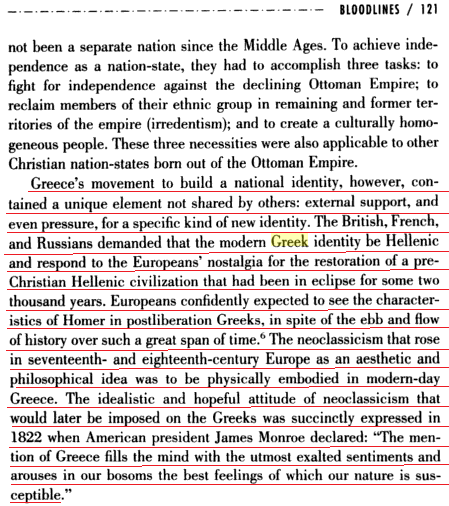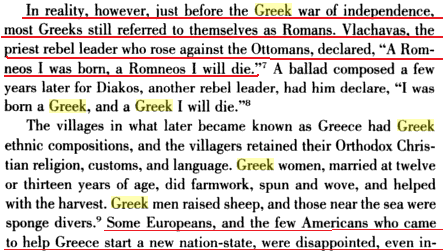
Most of us have heard of the great Hellenes of old. Stories of Gods and Heroes, philosophers and poets abound in our history books. Many with an interest in the demise of Hellas often ask themselves "What happened?" Where did those ideals go and why are those that call themselves 'Greek' today ignorant and superstitious? Many have said that the true Hellenic race no longer exists and that those that claim to be its heirs are mere impostors. Few people are willing to acknowledge that the advent of christianity meant the destruction of Hellas. Faced with the historical facts though, the dark forces that have occupied our nation for almost 2000 years resort to lies, aggression and at times open violence, in order to maintain their enormous wealth and hypnotic power over the semiliterate.
In 324 Era Vulgaris, having been impressed by the refusal of christians to denounce their God, the Roman Emperor Constantinus declared this bizarre sect the official religion of his realm. He built a new capital, Nova Roma on the site of the ancient town of Byzantium, which like Rome was surrounded by seven hills. Followers of the native religion were persecuted and their ancient temples destroyed. In fact, the word Hellenas became an accusation and referred to followers of the traditional Pantheon(s). Ôhe Greek-speaking christians of the New Order preferred to call themselves 'Romans' (Romaioi), and later 'Romioi'.
In the year 393, Emperor Theodosius outlawed the Olympic Games. The Library of Alexandria, a centre of Hellenistic civilisation and learning, was burnt down by a rabid mob along with most of its books. Later, the last of the Hellenic philosophers (amongst them Hypatia) were either hacked to pieces and their remains scattered in the streets, or burned at the stake. Classical works of science and literature were hunted down and destroyed. With the demise of the polytheistic Hellenic civilisation the dark ages fell like a black curtain over the world.
Christianity, after years of dispute eventually split into two, with the eastern branch calling itself 'Orthodox'. The Turks to the East were becoming an increasing threat to the Byzantines and the desperate Palaeologian Emperors considered aid from the West. The priests of Constantinople though, fearing Papist influence struck a deal with the Ottomans. The church's authority would be allowed to continue as before after the conquest, as Islamic teachings guaranteed freedom of religion for the 'Ahl-al Khitab' (People of the Book).
Despite today's theatrical denials, the Ottomans were in fact assisted in their conquest of Constantinople in 1453, by the 'fathers'. The city was heroically defended by only a few thousand soldiers and mercenaries, whilst almost half a million cowardly young men were serving their God in the monasteries. The last Emperor Konstantinos Palaiologos completely unaware of the betrayal, fell heroically as the Ottomans pillaged his unfortunate city. When the dust had settled, the Church's official explanation was that the fall of the Constantinople was 'God's Will' because its inhabitants had been sinful.
Islamic Law (Sharia) was imposed on all Byzantine subjects, whilst the eastern church and its celibate hierarchy were rewarded with supreme rule over the orthodox slaves (ragiades). This included the Greek-speaking christians who were once again recognised, like all other orthodox subjects of the new empire, as 'The Roman people' (Milleti Rum). The orthodoxoi, made up of different nationalities, were placed under the direct and complete control of the Ecumenical Patriarch.
Under the Ottomans, christianity thrived and the majority of the population remained ignorant and illiterate. Celibate priests regularly toured the countryside, escorted by Turkish officials. They demanded 'taxes', which they shared with the sultanate. Resistance to this oppression by the half-starved 'slaves' was met with threats of excommunication. It was considered appropriate that good christians remain servile.
... Hellenic Civilisation had all but died.
In the first half of the 19th century, part of the land they call Greece finally gained 'independence'. A suitable king was imported by its western sponsors, first from Bavaria and later from Denmark. 'Modern Greek history' was rewritten and a 'Graeco-Christian Tradition' invented. Tragically, the Orthodox Church put itself forward as the saviour of Hellenism. No one remained to contest its claims though, as the slaves had long learnt the art of servitude.
We the heirs of polytheistic Hellas, are the real Hellenes that honour our ancestral Gods and Heroes. We practice and defend the genuine Traditions, Religion and Ethos of our nation despite centuries of persecution. All we ask for is freedom of religion and freedom for our people to make up their own minds. For us Identity is sacred, it either relates to individuals or to nations and tribal units.
Heres another one-

Tryphon Olympios, founder of the Return of Hellenes movement, presides over a baby-naming ceremony at the foot of Mount Olympus.
For some modern Greeks and a growing number of foreigners, conventional ways of embracing Greece's rich past are insufficient. A perusal of Herodotus or an excursion to the Acropolis lack the personal satisfaction of participating in something larger than oneself. They want to live according to ancient ways, and to bring those ways to life through themselves.
There is no way to confirm the number of followers, but leaders of the very loosely organized movement, commonly referred to as the Hellenes or the Dodecatheon, after the 12 gods of the Greek pantheon, say there are maybe 2,000 hard-core practicing followers, and perhaps 100,000 nationwide who are open to the ideas and pursue some sort of interest. The movement has two main goals: to introduce a reformed version of ancient Greek religion, philosophy, and values to modern Greek society; and to curb the enormous power of the Greek Orthodox Christian Church. Many of the Hellenes' values are based on secular ancient Greek principles. Their mission is spread through self-published books, the Internet, and, on a more local level, discussion groups, courses in ancient Greek, and field trips to archaeological sites. Religious ceremonies and rituals are held both in groups and by individuals, at home and in public. The liturgical texts are largely based on Orphic hymns--invocations to the gods attributed to the mythical singer--and other ancient poetry. Some followers have small statues of the 12 gods on their living room shelves at home.






Comment